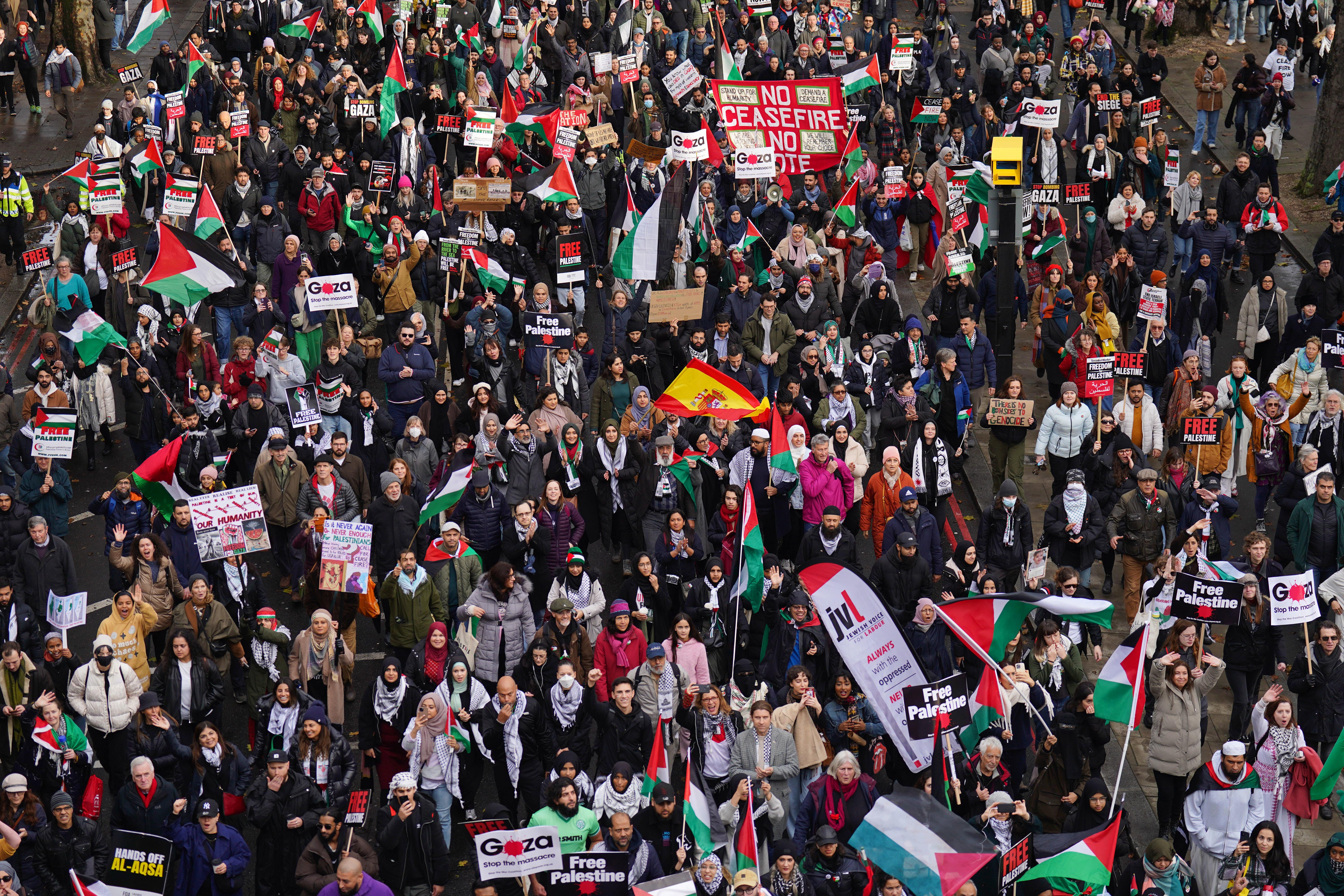Terror attack victims call for end to anti-Muslim hate in open letter
Signatories include survivors and relatives of those killed in attacks in the UK and around the world.

More than 50 victims of Islamist-inspired terror attacks have signed a joint letter calling for an end to anti-Muslim hate.
They warn it is the “height of irresponsibility” for some politicians to equate “being Muslim with being an extremist”.
“The single most important thing we can do is to isolate the extremists and the terrorists from the vast majority of British Muslims who deplore such violence,” the letter adds.
Signatories include survivors and relatives of those killed in attacks in the UK and around the world.
It comes as Communities Secretary Michael Gove is set to produce a new official definition of extremism within days.
Mr Gove told the Sunday Telegraph pro-Palestinian marchers should question whether extremist groups are behind some of the protests, and that the new definition will help protesters decide whether to attend events.
“Some of the events that have been organised, have been organised by extremist organisations,” he said.
“That doesn’t mean that people who have gone on them are extremist, quite the opposite. But it means that you can begin to question: do you really want to be lending credence to this organisation?”
The letter – signed by 58 survivors – says they are “only too aware” of the threat of “Islamist extremism”, but added that it is wrong to conflate extremists with the vast majority of British Muslims.
While Islamist-inspired extremism is our country’s most pressing terror threat, it is not our only one – and responding to it by feeding far-right extremism, dividing our communities and exaggerating the risk will feed a cycle of extremism that will put more people at risk
“This is not only wrong in itself, it makes the job of the Islamist extremists easier and plays into the hands of terrorists… We also know where anti-Muslim hate can lead.
“While Islamist-inspired extremism is our country’s most pressing terror threat, it is not our only one – and responding to it by feeding far-right extremism, dividing our communities and exaggerating the risk will feed a cycle of extremism that will put more people at risk.
“It is the height of irresponsibility.”
The signatories include Rebecca Rigby, whose husband Lee was killed by two extremists outside the Royal Artillery Barracks in Woolwich, south-east London, in May 2013, and Magen Inon, whose parents were killed in Hamas’s attack on Israel in October 7 last year.
Justine Merton-Scott, a survivor of the attack on the Bataclan theatre in Paris in November 2015, and Michelle Hussain, a survivor of the Manchester Arena bombing in May 2017 also signed.
Bookmark popover
Removed from bookmarks